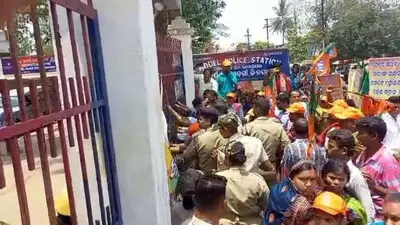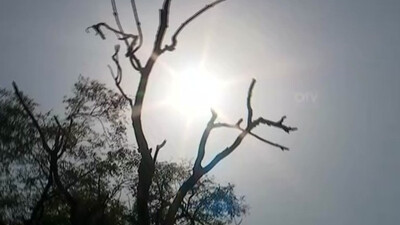Recommended Stories
For instance, Jhuli Kandi, an illiterate dalit woman from Dhinkia village, puts her thumb impression on documents, but is well versed in the finer points of the Act.
"This is the only law which has given power to illiterate and poor villagers and not to Sarkari babus (government officers)," 60-year-old Jhulia said.
Jhulia, a mother of four children, owns a small betel vine located on government land, now identified to be acquired for Posco`s mega steel plant.
Jhulia and others like Latika Parida said the Act had vested statutory powers on the village body or `Palli Sabha` under section 3, 5 and 6, which is a potent weapon in their `fight` against the the South Korean multinational.
Local sarpanch Sisir Mohapatra said when the Union Ministry of Environment and Forest accorded conditional clearance to Posco steel`s captive power plant and port projects on January 31, the villagers had lost all hope.
But the Posco Pratirodh Sangram Samiti president Abhay Sahu made people aware of their rights under the FRA, a relatively new legislation passed barely five years ago.
However, Jagatsinghpur district collector N C Jena alleged the Palli Sabha has been misused to oppose lawful land acquisition in Dhinkia and Govindapur gram panchayats which have passed resolutions against the project.
While the state government claimed that the people living at Posco`s proposed plant site villages were not eligible to get status of other traditional forest dwellers according to provisions of the FRA, the local people exihibited revenue documents claiming that they reside in the locality for over 100 years.
``How can the people in Dhinkia area be given staus of OTFD in the area which was categoried as forest land only in 1961," asks Orissa`s forest and environemnt secretary Aurobindo Behera, emphasing that no inhabitatnt of the seven villages was entitled to get benefits under provisions of FRA.
Contradicting state government`s claim, Sahu claimed that in the 1930 record of rights and settlement maps the area was described as forest and betel vines. The Maddox settlement report of 1890 said the area was famous for forest and betel vine cultivation, he claimed.
Posco project requires about 4,000 acres of land of which about 2900 acres were forest land. It is essential to get forest diversion clearance before the transfer of 2900 acres to Posco for setting up the mega steel mill at an investment of Rs 52,000 crore.












